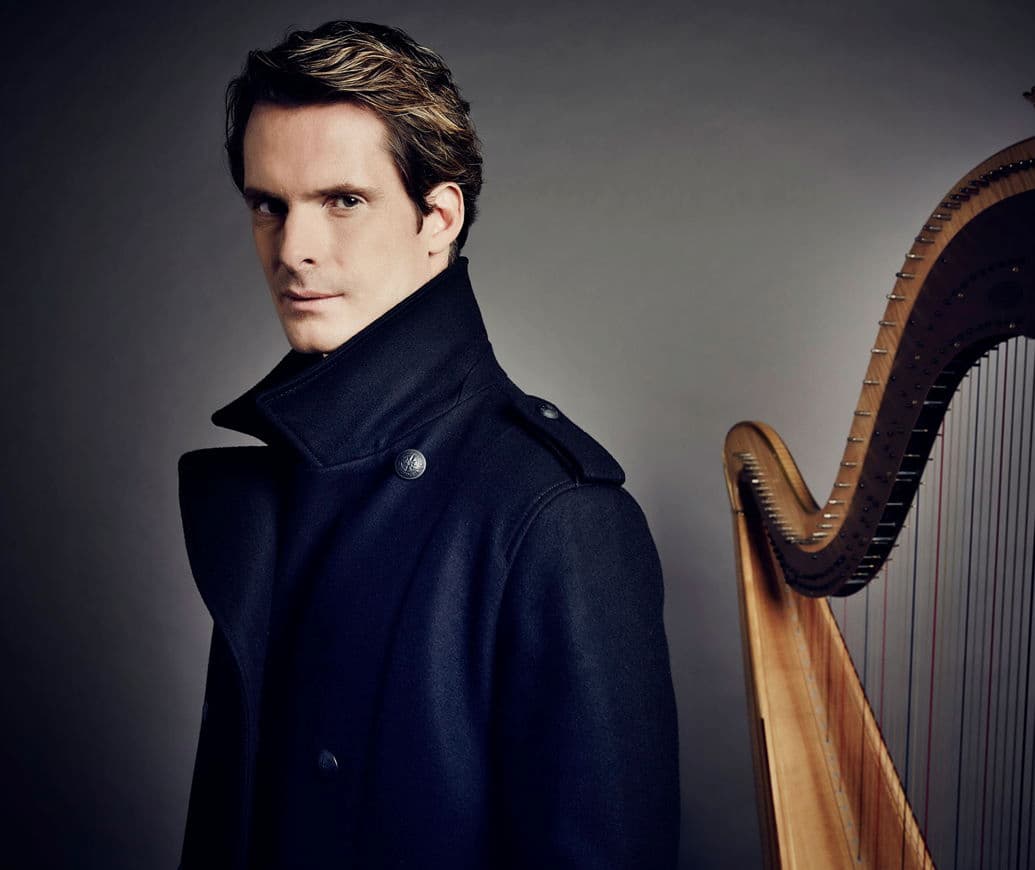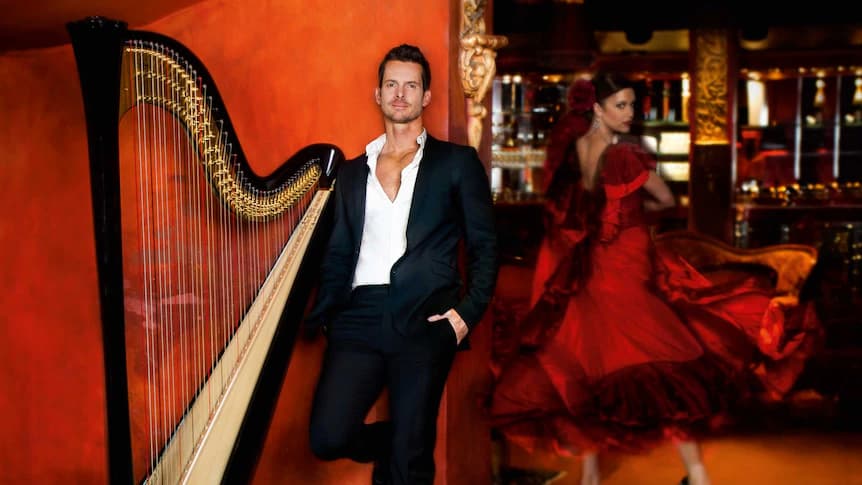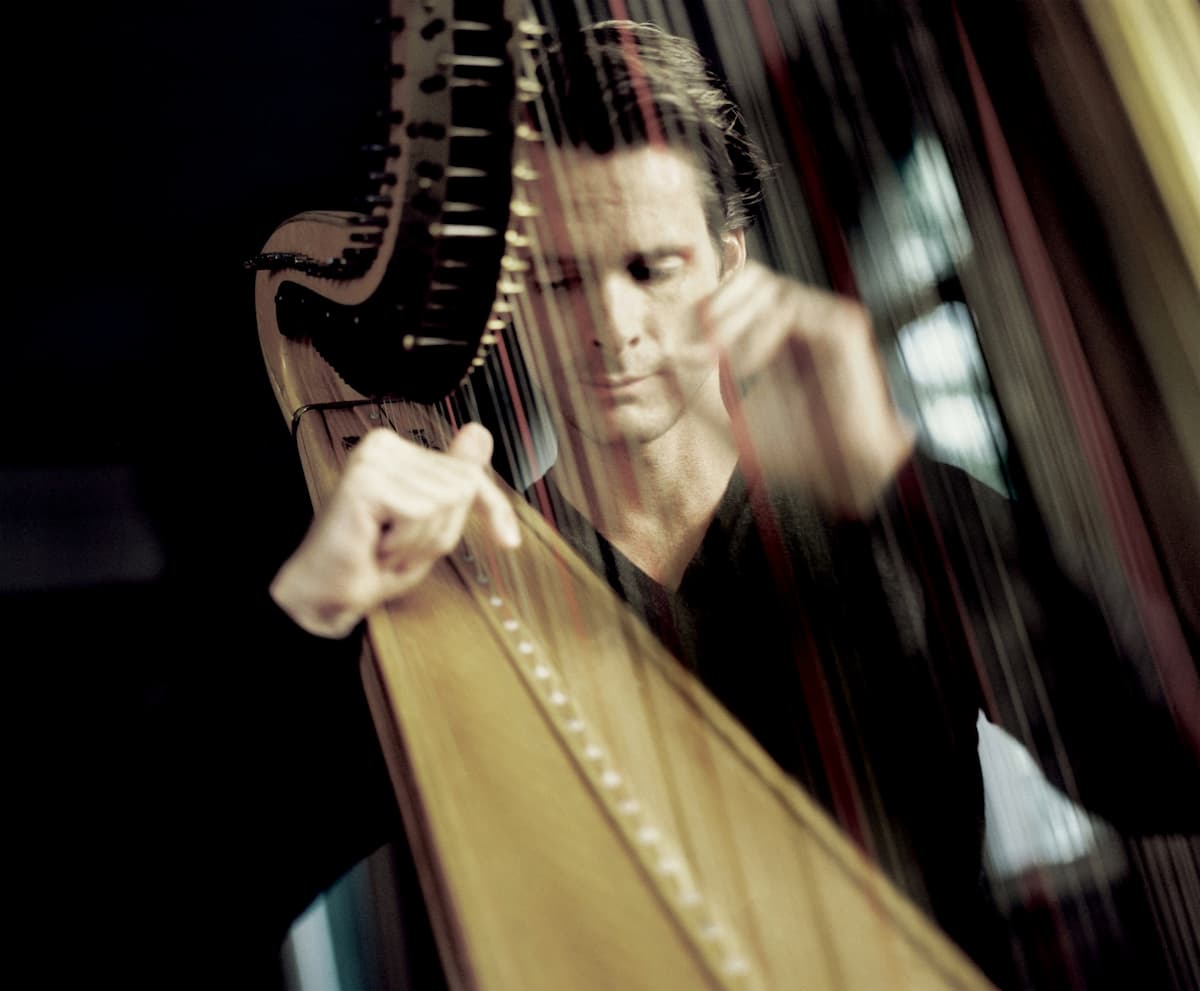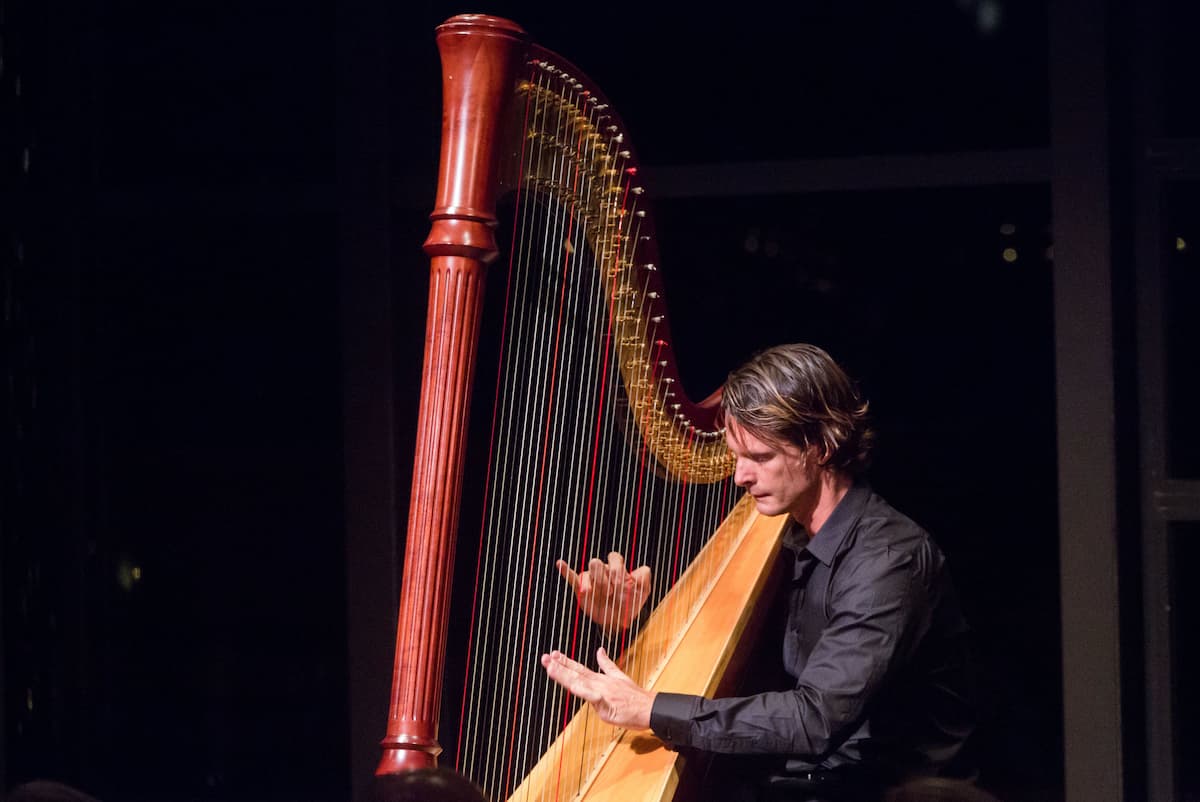The French harp virtuoso Xavier de Maistre has been called a musician of the highest order, “capable of realizing a remarkable range of nuance.” A profoundly creative musician, he has decisively broadened the harp repertoire by commissioning new works, and crafted highly popular transcriptions of important instrumental repertoire. Unfortunately, as he explained in an interview, “as harpists we don’t have 23 Mozart concertos like a pianist. So I always have to reinvent myself, have to have ideas and be creative.”
Xavier de Maistre Performs Smetana’s The Moldau, (arr. de Maistre)
First Steps

Xavier de Maistre
Born in Toulon on 22 October 1973, Xavier did not grow up in a musical family, although his father did like classical music. However, a musical career was actively discouraged, as his parents wanted him to learn a real profession. However, since his mother wanted him to have a balanced education, she sent Xavier to music school as a boy. Supposedly, “he was so enthusiastic about the harp teacher that he really wanted to learn the harp.” It’s a great story, but Xavier is quick to set the record straight. “She was and is an important person in my life, but to talk about being in love would be a bit much…”
Be that as it may, Xavier began his harp studies at the Toulon conservatory with Vassilia Briano at the age of nine. He continued his studies with Catherine Michel and Jacqueline Borot in Paris, and won his first international competition at the age of 16. Simultaneously, Xavier was intensely involved in sports. He was part with the French junior national team in rowing, and training took place six times a week. “I had workman’s hands,” he recalled, “full of calluses and blisters,” but it never affected his musical activities. “Sport was good for my back muscles,” he remembers, “because I never had the typical health problems of other colleagues.”
Alberto Ginastera: Harp Concerto, Op. 25 (Xavier de Maistre, harp; ORF Vienna Radio Symphony Orchestra; Bertrand de Billy, cond.)
Playing the Harp

His parents, however, were still not convinced that Xavier could make a good living from being a musician, and he studied political sciences at the famous “Ecole des Sciences Politiques” in Paris, and later at the London School Economics. “All my teachers kept telling me that these studies would be a waste of time and that I should concentrate fully on studying the harp.” Xavier continued to win international competitions in Cardiff, Munich, Vienna, and Jerusalem, and finally convinced his parents when he secured the position as principal harpist with the Bavarian Radio Symphony Orchestra.
Playing the harp, according to Xavier, requires good coordination because you are not only dealing with strings but with seven pedals as well. “A good memory, sensitivity and an exceptional sense of rhythm are also essential.” For Xavier, playing the harp is a mixture of athletic and intellectual ability. “It demands a lot of virtuosity from the player and at the same time a high level of strength. You really have to be trained! Playing the harp from memory is a great challenge and a fine art, so I tend to view the harp as a highly intellectual instrument.”
Jean-Baptiste Krumpholtz: Harp Concerto in B-Flat Major, Op. 7, No. 5 (Xavier de Maistre, harp; Les Arts Florissants Ensemble; William Christie, cond.)
On Arrangements and Commissions

Xavier de Maistre quickly realised that the harp repertoire was rather limited. However, he also understood that the harp could be a popular instrument. However, it was rather difficult to convince people that the harp could be a serious solo instrument. “I knew that if I wanted to develop a career as a soloist, I had to find new ideas for presenting the instrument in a new light.” Maistre initially produced arrangements of works by Debussy, Mozart, and Haydn, but he was very picky when it came to making arrangements. “60 percent of the piano literature can be played on the harp. But it doesn’t all sound good. It happens that I start a project and after a few months realise that it is of no use and I stop working.”
Maistre greatly enjoys his pioneering role, producing repertoire that has never existed before and opening up new doors for other performers as well. After he had established himself as a soloist, Maistre started to explore the possibilities of commissioning pieces by modern composers. As one of the leading harpists of his generations, he almost considered it his duty. He found out, however, that modern composers are frequently scared of the instrument, because of the complicated pedalling system. As Maistre explained, “I feel it’s now my responsibility to motivate contemporary composers to write for the harp.”
Reinhold Glière: Harp Concerto in E-flat Major, Op. 74 (Xavier de Maistre, harp; West German Radio Symphony Orchestra; Nathalie Stutzmann, cond.)
On Modern Times

For Maistre, it is essential to communicate via social media, but he feels that much of the “nuances and warmth are lost.” Maistre is seriously annoyed that art is not receiving enough attention at the moment. “It’s difficult for me to understand that politicians don’t think about it and we artists get the impression that we don’t need the music. We could develop solutions together. Because what defines humanity is culture as spiritual nourishment.”
According to Maistre, he is “sick and tired of hearing all that nonsense about digital concert formats or streaming alternatives. Nothing can replace the real concert experience, and a hall has to be full, because only then do we and the audience feel the energy that makes a concert such an incredibly enriching experience.”
For more of the best in classical music, sign up for our E-Newsletter
